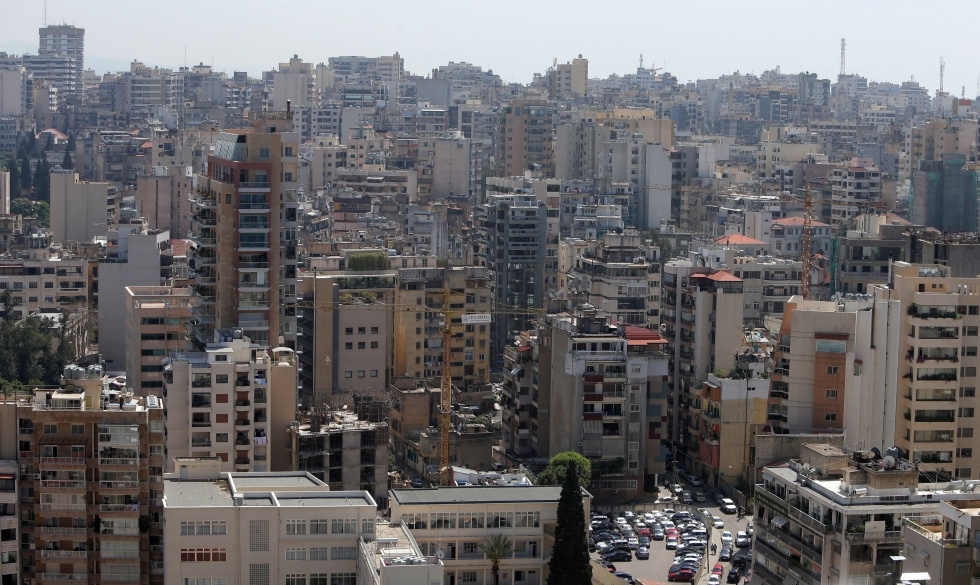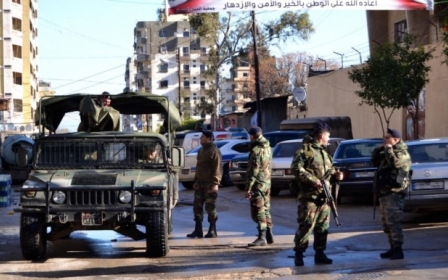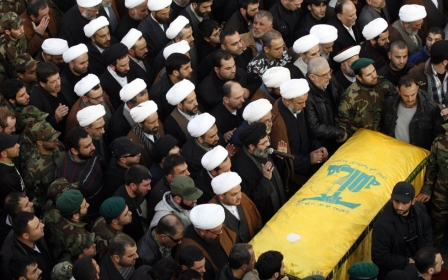Maid in Lebanon

In the republic of Lebanon life in general is cheap, but there are, of course, gradations of cheapness.
For politicians and other regular high-profile assassination targets, the cheapness of their lives is a reflection of the disproportionate value with which they are endowed.
For residents of South Lebanon and related areas, it has to do with their existence within Israeli crosshairs and atop unexploded Israeli ordnance.
For the fatal victims of petty disagreements, it’s often a combined result of the country’s inundation with small arms and widespread impunity on the basis of social and political connections.
And for migrant workers employed in the domestic service sector, sub-human status and the inherent lack of value attributed to their lives is, in the end, what renders them valuable.
For a minimal investment, Lebanese employers are able to extract labour from their domestic help as they might extract it from a vacuum cleaner, blender or other household appliance.
Obviously, no one cares if you want to stomp on your vacuum cleaner, smash it against the wall, or lock it in a room; nor are you required to supply the device with a consistent and timely paycheck.
The human attributes of migrant workers do come in handy for some things, however, as vacuum cleaners can’t be made to carry groceries, prepare tabbouleh or raise your kids.
The Google challenge
According to the International Labour Organisation (ILO), more than a quarter of a million female migrant domestic workers reside in Lebanon, a nation with a (pre-Syrian-influx) population of approximately four million. Most hail from countries like Ethiopia, Sri Lanka, the Philippines, and Bangladesh. Thanks to a visa sponsorship system known as ‘kafala’, they exist almost entirely at the whim of their Lebanese employers.
The mistreatment of these workers, which has been extensively documented, includes confiscation of passports, withholding of wages and prohibitions on free time and leaving the house. Verbal, physical and sexual abuse is common.
Back in 2008, Human Rights Watch reported that, on average, more than one migrant domestic worker died in Lebanon per week - primarily in cases of suicide or failed attempts to escape employers’ residences.
But hours of Google searches turn up an almost total dearth of instances in which employers were prosecuted for abusive behavioir. In a rare exception to the rule in 2009, a Lebanese woman was sentenced to 15 days in jail and a couple of fines for severely beating her maid.
This was clearly not the precedent-setting, accountability-boosting affair that some had hoped for, and atrocities continued apace. In 2012, for example, when an Ethiopian woman was publicly beaten outside Ethiopia’s consulate in Beirut, one of the assailants was identified as the brother of the director of the recruiting agency through which the woman had travelled to Lebanon.
Footage of the incident was broadcast on Lebanese television. The woman hanged herself two days later. End of story.
The old syndicate ‘guise’
In an article last year for Al-Jazeera, Mazin Sidahmed outlined some of the reasons for such impunity:
“Migrant workers are explicitly excluded from all existing labour laws in Lebanon, as each law begins with a statement indicating it does not apply to domestic workers. Lebanon is also not a signatory to the [ILO’s] Decent Work for Domestic Workers convention, or the United Nations International Convention on the Protection of the Rights of All Migrant Workers and Members of Their Families.”
Of course, Lebanon rarely upholds or abides by even the laws to which it officially subscribes. This suggests that we should view with more than a bit of skepticism a recent proclamation by Lebanese Labour Minister Sejaan Azzi promising new legislation to implement and safeguard migrant worker rights.
The Labour Ministry also took it upon itself to denounce as “illegal” the establishment of a domestic workers’ union comprising migrant labourers. In a statement quoted by Lebanon’s Daily Star newspaper, it condemned the “formation of groups under the guise of a syndicate”.
You’d think ISIS was trying to pass itself off as a trade union or something.
When some workers went ahead with their plan to organise, convening an inaugural conference in Beirut on 25 January, the Labour Ministry threatened to unleash the Internal Security Forces on the gathering to thwart allegedly “illegal” activity.
A noble endeavour, no doubt, in a country where the forces of law and order are themselves above the law.
An elite nightmare
The meeting, attended by several hundred foreign and Lebanese workers, laid the foundations for the first domestic workers’ union in the whole region.
The AFP quoted a Filipina survivor of rape and assault by her employer on the appeal of the nascent organisation: “With this union, I will no longer feel alone in the face of abuse.”
So why does the Lebanese government want to rain on the workers’ parade?
For starters, the prospect of having an infinitely exploitable sector of the labour force suddenly demand rights is an obvious nightmare for the elite upon whose interests the state of Lebanon is entirely founded.
If migrant workers are allowed to participate in officially sanctioned unions, so the elite thinking goes, this will signify the start of a slippery slope that will eventually see all of Lebanon’s oppressed - be they poor Lebanese, Palestinians or Syrians - clamouring for freedoms.
And, you know, more upper-class Lebanese might have to hold their own shopping bags once in a while.
But the danger posed by worker solidarity is not confined solely to Lebanon - a reality that is presumably quite well understood by Gulf emirs and other regional personalities whose obscene wealth enjoys an inverse relationship with the well-being of migrant labourers.
The UAE, at least, is ready with its mercenary army, set up under the guidance of infamous Blackwater founder Erik Prince. As the New York Times noted in 2011, the “troops could be deployed if the Emirates faced unrest in their crowded labour camps or were challenged by pro-democracy protests.”
While Lebanon whines about the “formation of groups under the guise of a syndicate”, let’s not forget the guise of normalcy and propriety under which modified slavery continues to flourish.
The views expressed in this article belong to the author and do not necessarily reflect the editorial policy of Middle East Eye.
Photo: Over 1,100 families will be displaced in order to create a buffer zone at least 500m deep (MEE)
- See more at: http://www.middleeasteye.net/columns/great-war-sinai-how-lose-war-terror-1904917073#sthash.63OB0tKI.dpuf- Belen Fernandez is the author of The Imperial Messenger: Thomas Friedman at Work, published by Verso. She is a contributing editor at Jacobin magazine.
The views expressed in this article belong to the author and do not necessarily reflect the editorial policy of Middle East Eye.
Photo: Workers held a meeting on 25 January in Beirut and laid the foundations for the first domestic workers’ union in the whole region (AFP)
Middle East Eye propose une couverture et une analyse indépendantes et incomparables du Moyen-Orient, de l’Afrique du Nord et d’autres régions du monde. Pour en savoir plus sur la reprise de ce contenu et les frais qui s’appliquent, veuillez remplir ce formulaire [en anglais]. Pour en savoir plus sur MEE, cliquez ici [en anglais].





